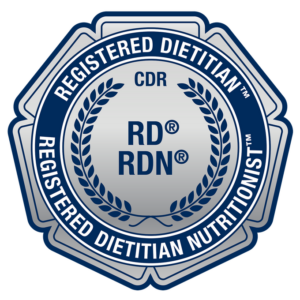Carbs – Good or Bad? If you’ve been confused by this question, you are in the right place. First of all, I don’t believe in labeling any food or macro as good or bad. Instead, focus on the quality of the macro. This article will address some common questions. What are Carbs? Do Carbs make you fat? Are Carbs good or bad? Will a low-Carb diet help me lose weight? Let’s break it down to help you understand Carbs.
What are Carbs?
Carb is short for carbohydrate. Carbs are one of the three macros in the food you eat. Macro, short for macronutrient, means they’re a large component of your diet. Just like Protein and Fat, Carbs give us energy we need for optimal health. Carbs are often thought of as the first line of fuel (energy). Most foods contain two if not three macronutrients.
Carbs can definitely be part of a healthy diet. Found in many foods that are full of vitamins and minerals. The goal is to include higher quality carbohydrates daily. In addition to quality protein and fat. Medline Plus says “It is best to get most of your carbohydrates from whole grains, dairy, fruits, and vegetables rather than refined grains. In addition to calories, whole foods provide vitamins, minerals, and fiber.”
Carbs do provide calories. And similar to the other two macronutrients, eating or drinking too many carbs can increase your daily calorie intake. Lower quality carbs include added refined sugar. Let’s break it down.
Effects of different Carbs on your body?
Carbs come in three different forms:
- Sugars (juice, sodas, desserts, candy) are the smallest and are the main type of “quick fuel” your body uses for energy.
- Starches (grains, legumes, potatoes, pasta/rice, etc) are broken down into sugar which is then used for energy.
- Fiber (legumes, vegetables, whole grains) provides bulk that helps you feel full and helps with a healthy digestion.
Each form has a different effect on your body. Sugar is the least healthy form of carbs. When you eat sugar alone, in the simplest forms, they’re absorbed quickly and can cause a quick “spike” in your blood sugar level. But, when your body lowers your blood sugar level shortly after, you may notice a feeling of hunger again. Sugar tends to be found in several drinks and highly processed foods. People who tend to eat more sugary foods have a higher risk of developing diabetes, heart disease, obesity and dental cavities.
If you eat carbs as starches, it takes longer for them to be broken down into sugars. So their effect on your blood sugar level is slower and lasts longer. This is a better option.
Many fibrous carbs, on the other hand, are not digested. But, rather help you feel full and contribute to a healthy gut by feeding our friendly gut bacteria. Fiber can help lower the risk of heart disease, stroke and digestive issues. And, help with blood sugar management with diabetes.
So, are Carbs – good or bad? As you can see the different forms of carb offer different effects on the body. It is best to focus on the quality of the carb within your daily food choices. But, with the right planning, all three forms can be included within the week.
Potential benefits of Carb-Controlled diets
Understanding the effects of carbs may help some people manage high blood sugars, pre-diabetes or diabetes, metabolic syndrome, and heart disease. The focus of carb quality may also help improve cholesterol levels and triglycerides.
Carb – controlled diets do need to eliminate carbs from your diet. More so, it is understanding the portions of carbs, reading the nutrition label and evaluating the appearance of your plate. With a focus on the quality of carbs in the form of starches and fiber. Along with the balance of lean protein and healthy fat can lead to sustainable weight loss.
What is a Low-Carb Diet?
Several popular diets throughout the years tend to be low carb. Low-carb diets may have a slight advantage for weight loss when compared to low-fat diets. However, studies find that after 12 months, the benefits are not that large.
Low Carb diets emphasize eating more protein and fat. This means more meat, poultry, fish and eggs. In addition to non-starchy vegetables. Some low carb diet promote overall reduction in the number of grams of carbohydrate. Low carb diets range from 50-150 grams daily.
Carbs should not be completely eliminated, but the focus should again be the quality of the carbohydrate in the form of whole grain, legumes, fruit and other starchy grains. Some low-carb diets promote an elimination of fruit. But, fruit offers fiber, antioxidants and vitamins and minerals. Fruit is an important part of overall health. But portion sizes are important.
Who Should Consider a Carb-Controlled or Low-Carb Diet?
Studies show the overall quality of food or diet is more important than focusing on just one nutrient, like carbs. This also includes a calorie restricted diet.
Here are a few things to consider.
First, if you are trying to lose weight, lowering your carb intake can help. At least for a short time. Especially in the form of sugar, processed foods with added sugar or sugary drinks. Keep in mind that portions of pasta, bread, rice and other starches are an important part of carb-controlled or low-carb diet. It doesn’t mean a complete elimination.
Be careful when you restrict any major macronutrient, such as carbs. As you may restrict key vitamins, minerals and fiber. This can lead to nutrient deficiencies and long-term concerns like digestive problems and chronic diseases.
Low-carb diets can be restrictive, and may not provide all necessary nutrients. Therefore, this diet is not recommended for adolescents, pregnant or breastfeeding women.
Most of the research on low-carb diets are short-term. So we don’t know all the possible health effects for eating like this over the course of many months or years. It’s possible that eating too much animal food could increase the risk of heart disease and certain cancers.
Nutrition Tips
Remember to focus on the quality of the carbohydrate, not just the total daily grams of carbohydrate. When increasing the amount of protein and fat, quality of both are also important. It is important to select healthy fats that offer more nutrients and fiber. In addition to lean protein that is lower in saturated fat. Always include the color of the rainbow in the form of non-starchy vegetables.
Drastic changes to your diet may lead to headaches, fatigue, muscle cramps and digestive changes. Restrictions of a very low carbohydrate diet, may experience ketosis or low blood sugars.
If you experience low blood sugars (hypoglycemia), gut issues or you are craving carbs, reassess your diet. This may not be the best plan for you.
Conclusion
If you’re struggling to find the right “diet,” maybe it’s time to stop searching and find the right fuel mix for you. For personalized assistance, schedule a 15 minute call below to learn more about my non-diet approach. Including foods that you enjoy and fuel your body.
Or, if you’ve been trying to implement lifestyle changes to improve blood sugars for health reasons, such as Pre-Diabetes. Check out this 4 week self-paced program on Preventing Diabetes through Nutrition and Lifestyle. Learn how to include quality carbohydrates balanced with protein and fat and the recipes to assist with your successful menu planning.
Get to know you call with Laura Cordero
When was the last time someone listened to you? Really listened and provided active feedback. The best way to see if we are a good fit is in a free introductory discovery session.


